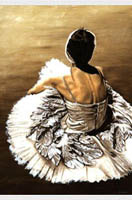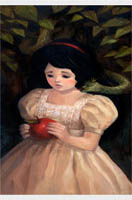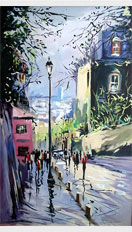Oil painting -> List of Painters -> Wolf Vostell

Personal Details
Name |
Wolf Vostell |
Place of birth |
Leverkusen |
Date of Birth |
14 October 1932 |
Date of Death |
3 April 1998 |
Nationality |
German |
Field |
Painter |
Wolf Vostell was a German artist who was considered to be one of the pioneers of the Fluxus, Happening, Nouveau Réalisme, and Video Art movements. He is often referred to as the "father of video art," and his work is recognized for its multimedia approach, blending artistic practices from painting, sculpture, photography, and performance. Vostell was born in Leverkusen, Germany in 1932 and studied at the Academy of Applied Arts in Berlin from 1951-1954. In 1953 he developed the concept of "Fluidum," which he defined as the "fusion of art, life, and technology." This concept was a cornerstone of his artistic practice, which aimed to explore the relationships between art and everyday life.
Vostell was a prolific artist and his work ranges from painting and sculpture to performance and installation. He was a pioneer of video art, creating some of the earliest works of the medium in the late 1950s and early 1960s. His video works often featured the use of found footage, appropriated television broadcasts, and manipulated images. He also experimented with the use of technology in his installations, incorporating mechanical and electronic devices into his works. His works often explored themes related to consumer culture, media, and technology, and he was known for his anti-war protests and political activism.
In addition to his artistic practice, Vostell was also an important art theoretician. He wrote extensively on the concepts of "Fluidum" and "Environment Art", which he defined as art that "has no boundaries, no limits, no boundaries between art, life and technology." He was also a founding member of the Fluxus movement and was an important figure in the Nouveau Réalisme movement.
Vostell's influence can still be seen in contemporary art today. His work is recognized for its pioneering contributions to the fields of video art, multimedia installation, and performance art. He was also an important theorist and his writings have had an enduring impact on the discourse of art theory.
Vostell passed away in 1998, but his legacy lives on. His works are in the permanent collections of major museums around the world, including the Museum of Modern Art in New York, the Tate Modern in London, and the Centre Pompidou in Paris. His influence can still be seen in the works of contemporary artists, who continue to explore his themes of technology, consumer culture, and media.
Works Of Wolf Vostell:
|
|
|










